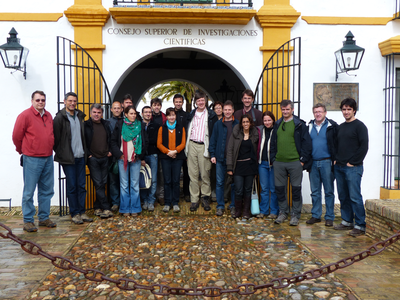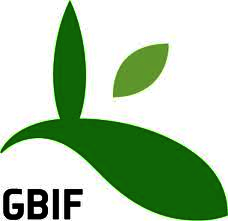A main obstacle to reach the 2010 biodiversity goals and to implement the European Biodiversity Strategy is lacking integration of biodiversity aspects into political, economic, and management decisions in different sectors mainly due to knowledge gaps. EU BON will provide access to sound data sources and scientific knowledge that is reliable, relevant, up-todate, and publicly available. Europe maintains substantial capacities to generate and manage such knowledge and to provide data relevant to assessing and managing our biological resources. These capacities concern research and technology development, tools for information management and infrastructure, and procedures for the development and implementation of well-informed environmental policies.
In order to meet the demands of the main political stakeholders in the EU, in this workshop an overview of the project will be given and first results will be shown summarized in the first show case which is dealing with datasets in relation to political targets and indicators. In addition, the idea how the science–policy/management interface can function for example via the planned European Biodiversity Portal will be presented and the requirements for policy (political administration) discussed.
Results of this first stakeholder round table will be documented and passed back to the project in order to increase its relevance. Next stakeholder round tables can be used to evaluate the progress of the project with regard to serving the demands of EC, EEA, GEO BON, IPBES and other stakeholders.
The Helmholtz Centre for Environmental Research – UFZ is now offering a position for Quantitative Ecologist (Postdoc) in their Department of Conservation Biology. The position is open to both male and female applicants and it runs for 42 months, starting latest on 01.08.2013 in Leipzig, Germany. Salary will be according to the appropriate civil service level TVÖD, salary group 13.
The successful candidate will be focusing on optimizing monitoring designs at different scales under field constraints and assessinguncertainty in biodiversity trend analyses. He/She will have a PhD in an ecological discipline relevant for the research topic (e.g. population biology), excellent statistical and computing skills, a distinguished publication record, experience in international cooperation and strong interest both in theoretical and applied biodiversity conservation. Fluency in English in speech and writing is essential, some knowledge of German is of advantage.
The first meeting of Work Package 5 (EU BON testing and validation of concepts, tools, and services) was held between 2nd and 4th April, 2013 in the Doñana Biological Station, in Spain. 23 people from 10 different institutions (7 of the EU BON consortium) worked towards building a draft on Principles and Guidelines for establishing and operating EU BON test sites.
During the meeting the members agreed on starting documenting each of the sites, using a common format to be decided in May on the Informatics Task Force meeting of WP2 (Data integration and interoperability) in Norway. A data inventory will also be built in each of the sites, adding monitoring protocols in stepwise fashion.
In addition the meeting served to get a better view of the variety of Ecosystems in Doñana as well as the monitoring protocols that are being conducted in this area.

Join the online community of EU BON and create buzz around the project. Take full advantage of our social network channels to interact with stakeholders and contribute to the EU BON discussion. Get an easy access and the latest updates on news and events around the project. You are a click away from making a difference to the project’s visibility.
Like, follow or join EU BON Social Media and get involved in the community now!
 |
Like us on Facebook
• Get the latest news in pictures and videos
• Interact and join a community of like-minded supporters
• Find out about events and group activities
|
 |
Follow us on Twitter
• Get short and up-to-the-point updates on the latest news
• Take part in live discussions during conferences and conventions
• Join and interact with a wider bioinformatics community
|
 |
Join us on Google+
• Join a growing social community
• Get the latest project and news alongside relevant media
• Promote the project and get involved in discussions in your circles
|
 |
Join us on LinkedIn
• Get in touch with professionals in the area of research
• Contribute to discussions
• Promote your project in a professional community
|
The official Kickoff meeting of the Building the European Biodiversity Observation Network (EU BON) project, organized by the Museum für Naturkunde, Berlin, took place on 13-15 February 2013 to formally mark the beginning of the project and to set goals and objectives for the future. Among the hottest issues discussed was the integration of EU BON's framework with the Global Earth Biodiversity Observation Network project GEO BON and the Global Earth Observation System of Systems (GEOSS). Another intention set for the future is the enhanced communication and synchronization between the various partners and work packages.
The main objective set for EU BON is to facilitate with its contributions, and thus build a substantial part of GEO BON. EU BON Advisory Board, comprising ten leading experts in data management, biodiversity conservation and earth observation realms has been set up. Dr. Wouter Los - Chairman of the Expert centre for Taxonomic Identification (ETI), and 2nd Vice Chair of the Global Biodiversity Information Facility Governing Board (GBIF) was elected as a chair of the EU BON Advisory Board. It has been decided, with the directions and help of the EU BON's Advisory Board, to achieve that a substantial amount of work should be done towards a more comprehensive vision of the relationship between the two projects and the place EU BON takes as a major contributor.
Another aim delineated is working towards collaboration between the currently fragmented biodiversity data sources in Europe in an attempt to create an integrated network and framework for the benefit of the project objective itself, and GEO BON eventually. Dialogue and association with similar or relevant biodiversity projects and initiatives, on European and Global levels, are also encouraged. Organizing a conference is on the project's to do list.
Enhanced communication between the different partners and work packages has been outlined as the engine for achieving of the projects main objectives. A second official meeting has been already assigned for 2014 to measure the progress of EU BON and to set further goals. Meanwhile partners are already organizing workshops to work towards reflecting the directions for development currently set.
The European Biodiversity Observation Network (EU BON), a European project on biodiversity data, was launched in December 2012. The Belgian Biodiversity Platform attended the symposium connected to the EU BON kick-off meeting in Berlin, Germany, on 11-12th February 2013.
The symposium entitled ‘Nature and Governance: Biodiversity Data, Science, and the Policy Interface’ highlighted the importance of biodiversity data for policy-making and research. The complexity of producing and collating data on an international scale involving different methods and disciplines was well illustrated. The importance of the accessibility of biodiversity data within an integrated system was well demonstrated - the sum of all contributions will in the end enable monitoring, forecasting and policy-making.
EU BON will create a substantial part of the Group on Earth’s Observation’s Biodiversity Observation Network (GEO BON) and will operate in support of biodiversity sciences and policy initiatives, such as the Intergovernmental Science-Policy Platform on Biodiversity and Ecosystem Services (IPBES) and the Convention on Biological Diversity (CBD).
EU BON will build on existing components, such as the Global Biodiversity Information Facility (GBIF), LifeWatch infrastructures and national biodiversity data centers. As Belgian GBIF node, the Belgian Biodiversity Platform can provide an important support to the development of EU BON. The Belgian partners in the EU BON project are the Royal Museum for Central Africa (RMCA), the Royal Belgian Institute of Natural Sciences (RBINS), and the National Botanic Garden of Belgium (Botanic Garden).
We will follow with interest the development in the EU BON project and will continue publishing data through GBIF. If you would like to support this initiative by having your data published on GBIF, please contact André Heughebaert (GBIF node manager), Dimitri Brosens or Kristina Articus (Biodiversity Experts).
The position is set for a two-year contract with a possibility for further extensions.
More information about the position, the application process and job requirements is available below and in the document attached.
##
Zur Unterstützung der Beteiligung des MfN an EU BON ist am Museum für Naturkunde Berlin zum nächstmöglichen Zeitpunkt eine vorerst auf 2 Jahre befristete (mit der Option der Verlängerung)
Position eines/einer Wissenschaftlichen Mitarbeiters/in mit 75% der regelmäßigen wöchentlichen Arbeitszeit Entgeltgruppe E13 TV-L Berlin zu besetzen
Aufgabengebiete:
Wissenschaftliche Mitarbeit und eigenständige Durchführung spezifischer Aufgaben innerhalb des EU BON Projektes, vor allem innerhalb der Arbeitspakete 1 (Datenquellen) und 2 (Datenintegration), i.b.
- Datenrecherche und Erstellung von Übersichten für EU BON relevanter Daten- und Informationsquellen;
- Bewertung und Lückenanalyse bestehender Datenbanken und Informationssysteme zur Biodiversität;
- Harmonisierung, Aktualisierung und Koordinierung taxonomischer Referenz-Datenbanken i.b. für Europa;
- Unterstützung der Einführung und Verbesserung von Datenstandards zur Verbesserung der Integration und Interoperabilität unterschiedlicher Datenebenen
- Mitwirkung bei Erprobung neuer Datenerhebungsansätze und –verfahren, auch im Gelände
- Planung und Durchführung von Projekttreffen und -veranstaltungen
- Erstellung von Ergebnisberichten und wissenschaftlichen Präsentationen / Veröffentlichungen.
The news about the International Symposium "Nature and Governance – Biodiversity Data, Science, and the Policy Interface" and the official EU BON Kickoff Meeting has been reflected in the January newsletter of the The Global Biodiversity Information Facility (GBIF).
GBIF only features high end biodiversity news and major projects. EU BON project summary is placed in the collaborations section of the newsletter and the two events are included in the Upcoming Events, pointed out to the readers' attention.
To view the GBIF newsletter for January, please go to: http://www.gbif.org/communications/resources/newsletters/, or see the newsletter PDF attached below.
 GBIF logo
GBIF logo
The EU BON project is pleased to announce the International Symposium "Nature and Governance – Biodiversity Data, Science, and the Policy Interface", which was held in Berlin from 11 to 12 February. The symposium aimed at clarifying and popularizing EU BON's objectives prior to the official EU BON Kick-off Meeting held from 13 to 15 February 2013.
The symposium was hosted by the Museum für Naturkunde Berlin and brought together high-ranking speakers and guests from across the world to talk and discuss the different aspects of the EU BON Project. Among the main issues covered was the future of biodiversity information, the challenges in front of new data policies, new approaches in collecting information, and ways to engage the public in biodiversity monitoring and assessments.
The EU BON project was started on 1 December, 2012, and will continue for 4.5 years. The aim of EU BON is to build a substantial part and contribute to the Group on Earth Observation's Biodiversity Observation Network (GEO BON), through an innovative approach of integration of biodiversity information systems. The project, built as an answer to the need of a new integrated biodiversity data, will facilitate access to this knowledge and will effectively improve the work in the field of biodiversity observation in general.
###
For more information on the symposium and the events planned, please visit our programme page.
All interested parties are most welcome to attend the symposium or to follow it on Twitter, Facebook, or Google+.
Additional information
EU BON (2012) stands for "Building the European Biodiversity Observation Network" and is a European research project, financed by the 7th EU framework programme for research and development (FP7). EU BON seeks ways to better integrate biodiversity information and implement into policy and decision-making of biodiversity monitoring and management in the EU.
GEO BON stands for "Group on Earth Observations Biodiversity Observation Network". It coordinates activities relating to the Societal Benefit Area (SBA) on Biodiversity of the Global Earth Observation System of Systems (GEOSS). Some 100 governmental, inter-governmental and non-governmental organisations are collaborating through GEO BON to organise and improve terrestrial, freshwater and marine biodiversity observations globally and make their biodiversity data, information and forecasts more readily accessible to policymakers, managers, experts and other users. Moreover, GEO BON has been recognized by the Parties to the Convention on Biological Diversity. More information at: http://www.earthobservations.org/geobon.shtml.
 EU BON Logo
EU BON Logo
The article quotes the EU BON project as "the only EU project of its kind with a main purpose is to build an infrastructure that improves the exchange and dataflow throughout Europe." More can be found at: http://www.biodiversity.no/ArticleList.aspx?m=34&amid=11718
The news about the partnership has been also picked up by the English language Norwegian Source for science news ScienceNordic.
Earlier on the visibility and the popularity of the EU BON project have been also enhanced by a publication of the first newsletter by the Estonian science news website eBiodiversity, with credit given to the ambitious project aiming to build an European gateway for integrated biodiversity information.
EU-funded project EU BON will build the European gateway for integrated biodiversity information
###
 Logo
Logo
The EU BON project which is coordinated by the Museum für Naturkunde in Berlin/Germany has started on 1 December and will continue for 4.5 years. The EU BON Kickoff Meeting will be held in Berlin from 13 to 15 February 2013.
With respect to EU BON’s objectives the International Symposium "Nature and Governance – Biodiversity Data, Science, and the Policy Interface" will be held prior to the EU BON Kickoff Meeting from 11 to 12 February in Berlin with high-ranking speakers. You are most welcome to attend the Symposium.
The Museum für Naturkunde Berlin is pleased to host this international symposium and will bring together high-ranking speakers and guests from worldwide to talk and discuss about these
Major Topics:
- What (data) policy needs
- The future of biodiversity information: new ways for generating, managing, and integrating biodiversity data
- How new approaches / models can link scales and disciplines
- Broadening the base and opening up: new ways to engage the public and stakeholders in biodiversity monitoring and assessments
- Résumé / conclusions
For more details, please have a look at the programme page.
The 1st day of the Symposium and the reception will be held "under the dinosaurs" in the central exhibition hall of the Museum für Naturkunde in Berlin.
The 2nd day will be held in the Seminaris Conference Center in the quiet south-west of Berlin. The closing of the Symposium will be celebrated as "Come together & Ice-Breaker for EU BON Kickoff Meeting" in the nearby beautiful Large Green House of the Botanic Garden Berlin.
If you want to take part, please register at the registration page.
 Logo
Logo




 RSS news
RSS news
 Agenda First EU BON Stakeholder Meeting final
Agenda First EU BON Stakeholder Meeting final 
